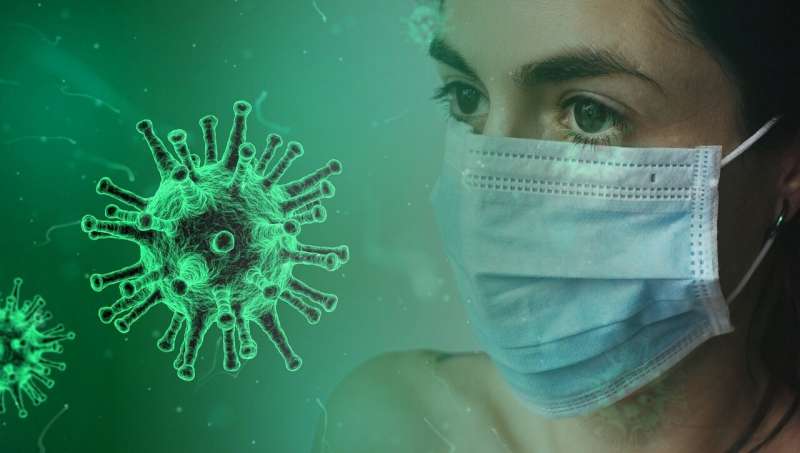What happens to your body when your have COVID-19?

As the number of cases of COVID-19 rises, experts continue to learn more about the disease. They know that symptoms include fever, cough and shortness of breath. But what does the virus do inside your body to cause those symptoms?
Dr. Neal Patel, a Mayo Clinic pulmonary and critical care medicine specialist, says that like most viruses, the virus that causes COVID-19 enters the body when you breathe it in through the mouth or nose. It also may enter through the eyes.
"Once it enters into the body, many different things happen," says Dr. Patel. "Initially, the virus can cause some damage locally where it enters. Then it moves further into the respiratory system."
Initial symptoms
"If the virus enters through your nose, you may notice typical symptoms of an upper respiratory tract infection, such as a runny nose or nasal congestion," says Dr. Patel."The virus may stop there or may continue down the respiratory tract, where it can cause issues such as coughing."
Immune system response
"There is an initial immune response when a virus enters a body for the first time," says Dr. Patel. "It's a generic response where the immune system turns on and says: 'You're not supposed to be here. I'm going to try to kill you.' It's not a very robust response, but it is something."
" As your immune system revs up, you build more antibodies through a process called 'adaptive immunity,'" says Dr. Patel.
"You build an army to take down this virus. There are times when the virus finds its way into the lower respiratory tract and causes lots of damage. Unfortunately, our body's response to kill that virus in the lower respiratory tract can cause a lot of collateral damage. Sometimes it's an exaggerated response, kind of like bringing an army to kill an ant."
Difficulty breathing
"The lung function deteriorates," says Dr. Patel. "The ability to get oxygen in and out of the bloodstream becomes affected. Your muscles may become impaired and you get fatigued trying to inhale and exhale against lungs that aren't working too well."
Dr. Patels says that the virus can lead to inflammation of the lower respiratory tract, and in severe cases, a pneumonia can develop.
Need for hospitalization
"That type of patient may require some help," says Dr. Patel.
"Mechanical ventilation, or a ventilator, is how we help that patient to rest a little bit. It allows them to get the oxygen they need so the body can work to calm this down and hopefully get rid of the virus."
The virus also may cause gastrointestinal issues, such as diarrhea.
©2020 Mayo Foundation for Medical Education and Research
Distributed by Tribune Content Agency, LLC.



















